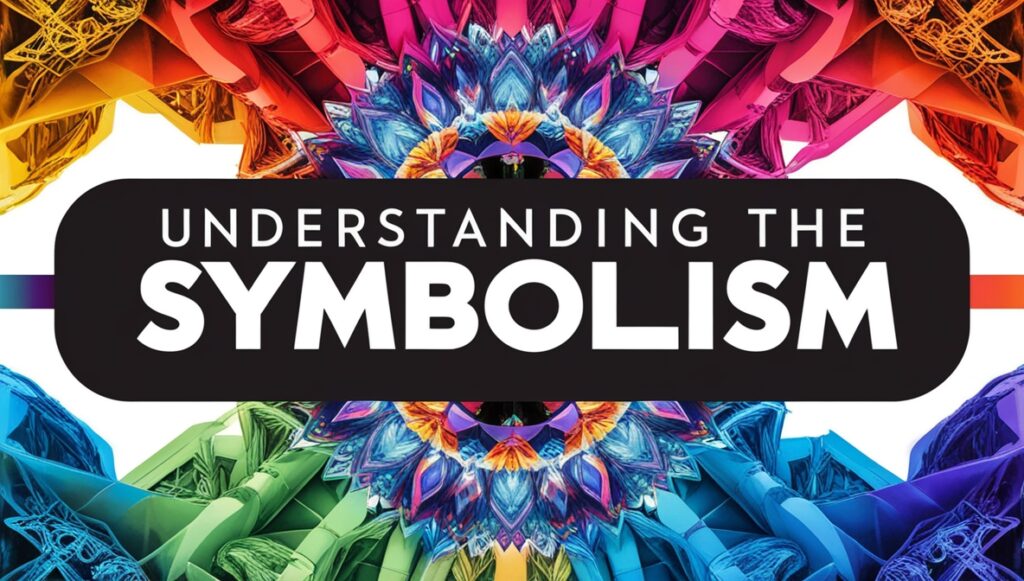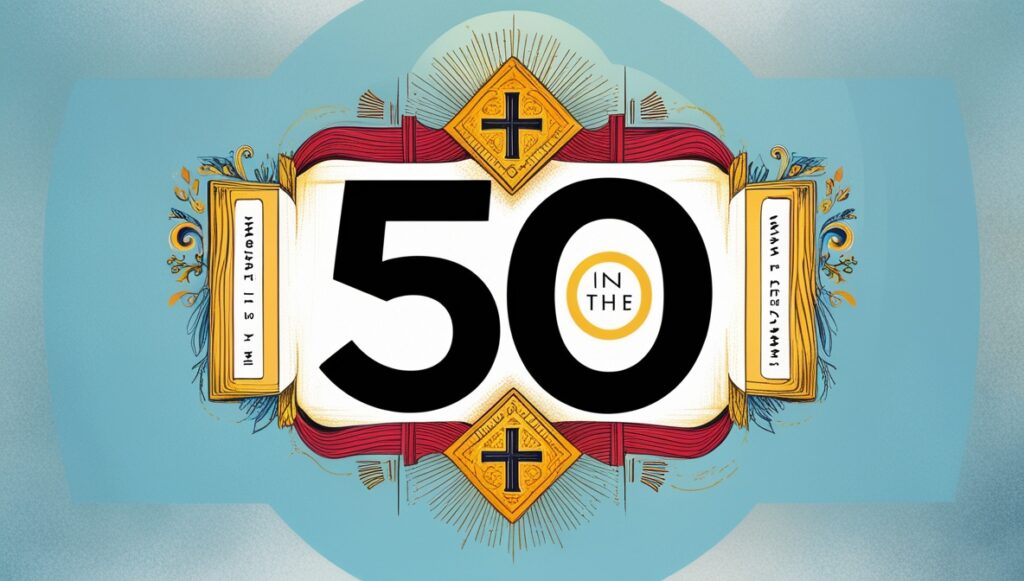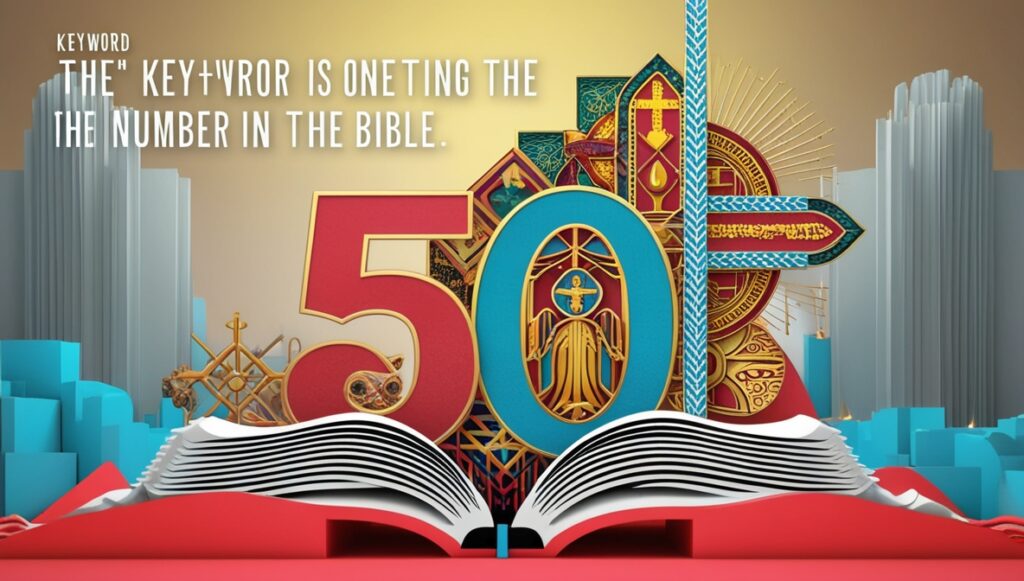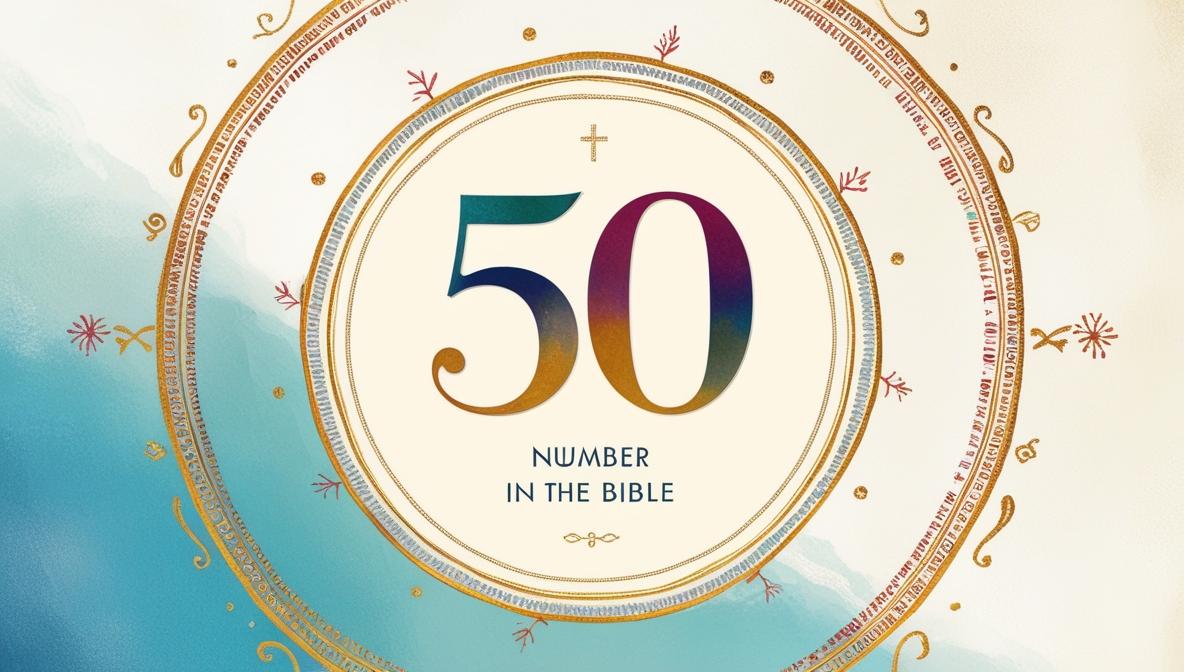The number 50 in the Bible is rich with symbolic meanings, and numbers play a crucial role in conveying deeper spiritual messages. Among these numbers, 50 stands out as particularly significant.
Whether it’s in the Old or New Testament, the number 50 represents freedom, deliverance, grace, completion, and restoration.
Understanding the symbolism of 50 opens up a new layer of insight into God’s divine plan.
In this article, we’ll explore the meaning of 50 in the Bible and how it’s connected to important events, festivals, and prophecies.
Let’s dive into the spiritual significance of the number 50 and discover what it reveals about God’s plan.
The Biblical Importance of Numbers
Numbers in the Bible are more than just mathematical symbols. They often hold spiritual significance and convey deeper messages from God. For example:
- 7 often represents completion or perfection.
- 12 signifies divine order or authority.
- 40 is the number of trial or testing, such as when Moses spent 40 days on Mount Sinai.
the number 50 in the Bible is unique and powerful. It’s not just another number; it’s a number that points to freedom and deliverance.
In biblical numerology, numbers are a way for God to communicate His will and purpose to His people.
Understanding the Symbolism of 50

In the Bible, 50 often points to freedom, deliverance, and grace. It is not just a number; it signifies God’s favor and His ability to restore and renew His people.
The number 50 is tied to cycles of time showing that God’s plan unfolds in divinely appointed seasons.
Key Spiritual Themes of 50
- Deliverance: The number 50 marks a time of release from bondage.
- Grace: Just as the year of Jubilee is about forgiveness, 50 represents a new beginning.
- Completion: The number 50 signifies the completion of cycles and the beginning of a new season.
- Restoration: 50 brings about the restoration of lost opportunities and the return of blessings.
The Significance of 50 in the Old Testament
The Old Testament is rich with examples of the number 50 symbolizing divine intervention, renewal, and restoration. Let’s explore some key moments when this number played a significant role.
The Jubilee Year (Leviticus 25)
One of the most important events tied to the number 50 is the Jubilee Year. Every 50th year, the Israelites were commanded to celebrate the Year of Jubilee. This was a year of freedom, restoration, and reconciliation. During the Jubilee:
- All debts were forgiven.
- Land that had been sold was returned to its original owner.
- Slaves were freed.
The Jubilee was a powerful reminder of God’s grace, favor, and deliverance. It marked a reset for the people, reminding them that everything ultimately belongs to God.
It was a symbol of spiritual freedom, showing that God’s justice and mercy were in full action.
The Feast of Weeks (Pentecost)
The Feast of Weeks, also known as Pentecost, is another example of the number 50 in the Old Testament.
This feast occurred 50 days after Passover and was a time of thanksgiving for the grain harvest.
The number 50 was a symbol of fulfillment a time when the people of Israel recognized God’s provision and blessing.
Moses and the Ten Commandments
Moses spent 40 days on Mount Sinai receiving the Ten Commandments. After this time of testing, he came down with the Tablets of the Law.
The number 50 is important here because it marks the fulfillment of God’s promise to give the Israelites His guidance through the Torah.
This is a significant moment in biblical history as it marks the establishment of God’s covenant with His people.
The Significance of 50 in the New Testament

In the New Testament, the number 50 continues to symbolize divine intervention, grace, and deliverance, with a special focus on Pentecost and the work of the Holy Spirit.
Pentecost and the Coming of the Holy Spirit
In the New Testament, Pentecost holds a deep spiritual meaning. Occurring 50 days after Passover, Pentecost is when the Holy Spirit descended upon the disciples in Jerusalem.
This event marked the birth of the Church and is often seen as a new beginning in God’s plan for humanity.
The outpouring of the Holy Spirit on the 50th day signifies the completion of the divine plan.
It was a time of renewal, when God poured out His grace and favor on His followers, empowering them to spread the Gospel and build His kingdom on Earth.
Peter’s famous sermon during this event resulted in 3,000 people being baptized and receiving the Holy Spirit.
This fulfillment of God’s promise showed the restoration of humanity through Jesus Christ, who had just ascended into heaven.
Jesus’ Ascension to Heaven
The ascension of Jesus happened 40 days after His resurrection, marking the end of His earthly ministry.
Ten days later, the Holy Spirit was sent to the disciples at Pentecost. The ascension and the coming of the Holy Spirit are both linked to the number 50.
They represent the completion of Jesus’ earthly mission and the beginning of the Holy Spirit’s work in the world.
The number 50 is key to understanding the transition from Jesus’ earthly ministry to the empowerment of the Church.
Through Pentecost, God initiated a new era of deliverance, grace, and spiritual restoration.
Lesser-Known References to 50 in the Bible
While the Jubilee Year and Pentecost are the most well-known instances of the number 50, there are other lesser-known references that reveal the number’s symbolic power.
The 50 Mighty Men of David
In 2 Samuel 23:13-17, we read about the 50 mighty men who protected King David from King Saul.
These warriors are a symbol of strength and protection, showing how God’s favor was upon David.
The number 50 here highlights that David’s leadership was divinely protected, and his kingdom was secured by God’s strength.
Isaac and Jacob’s Fatherhood
The ages of Isaac and Jacob at the time of their first children are another interesting example.
Isaac was 60 years old when he became a father, and Jacob was 50. These ages symbolize the fulfillment of promises made by God, marking the continuation of His plan through future generations.
The number 50 here shows that God’s promises are faithful and sure, and they come to pass in His perfect timing.
The 50 Gold Shields of Solomon
In 1 Kings 10:16-17, King Solomon made 50 gold shields as part of his royal splendor. These shields represented divine protection and glory.
The number 50 here is tied to God’s favor on Solomon’s reign and reflects God’s abundance and blessing over His people.
Connecting the Symbolism of 50 in the Bible

The number 50 ties together several key biblical themes:
- Freedom: From the Jubilee Year to Pentecost, 50 represents liberation and deliverance.
- Grace: It symbolizes the unmerited favor of God, seen in both the Jubilee Year and the outpouring of the Holy Spirit.
- Completion: 50 marks the end of one season and the beginning of another.
- Restoration: It highlights the restoration of relationships, property, and spiritual wholeness.
By exploring these themes, we can see how the number 50 acts as a divine marker of spiritual renewal. It is a number that signifies God’s justice, mercy, and guidance throughout history.
Frequently Asked Questions
Spiritual Meaning of the Number 50
The number 50 symbolizes freedom, deliverance, grace, and completion in spiritual contexts.
What Does 50 Mean?
The number 50 often represents a time of renewal, restoration, and fulfillment.
Number 50 Meaning in the Bible
In the Bible, 50 signifies spiritual liberation, especially during the Jubilee Year and Pentecost.
What Does 50′ Mean?
The number 50 is associated with significant events, like the descent of the Holy Spirit at Pentecost.
The Number 50 in the Bible
In the Bible, 50 marks important moments like the Jubilee Year, freedom, and the giving of the Torah.
Conclusion
The number 50 in the Bible is much more than just a number. It carries profound spiritual significance, representing freedom, grace, favor, and restoration.
Whether in the Old Testament with the Jubilee Year and the Feast of Weeks, or in the New Testament with Pentecost and the ascension of Jesus, the number 50 symbolizes God’s divine plan unfolding in complete harmony.
As we reflect on the role of 50 in biblical history, we are reminded of God’s faithfulness, His ability to restore, and the deliverance that comes through Jesus Christ.
Just as the number 50 marks the completion of one season and the beginning of another, it reminds us that God’s work in our lives is everlasting and always moving us toward spiritual fulfillment and freedom.











